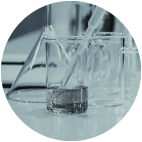Although some are more damaging than others, all STIs have the ability to cause problems when trying for a baby and during pregnancy. Below is a rundown of how the key STDs can have a negative effect.
Gonorrhoea
A mother that has untreated gonorrhoea whilst pregnant has a heightened risk of miscarriage. At birth, the child is at a heightened risk of catching a serious blood infection, joint infection or even blindness.
Chlamydia
As well as having the potential to cause pelvic inflammatory disease which can impact your ability to get pregnant, chlamydia can increase the risk of miscarriage and preterm delivery. If passed on to the child, it may develop an eye infection (conjunctivitis) or a lung infection (pneumonia).
Syphilis
Syphilis is easily passed on during pregnancy and can be extremely dangerous to your unborn child. It can cause serious infections which may be fatal and will often cause the baby to be delivered prematurely. Infected infants that survive may develop a range of long-term health complications
Hepatitis B
Hepatitis is a liver infection that can be transmitted to a baby via the placenta. The infected newborn can then become a carrier of the disease which can have serious long-term health implications.
Herpes
Herpes is perfectly safe until the baby is ready to be delivered. If the mother is having a herpes outbreak then a caesarian may be performed in order to prevent the virus from from spreading to the child. Herpes can be fatal for newborn children, including when kissing them if cold sores are present around the mouth.
HIV
Thanks to advances in medication HIV can be suppressed in a way that it will not be passed on to your baby during pregnancy. However, HIV can go undiagnosed for many years so it’s important that you know you have it and you’re receiving treatment before trying for a baby otherwise the consequences can be serious for your child.
Mycoplasma Genitalium
This is not always tested for on the NHS, but Mycoplasma Genitalium can have a similar impact to chlamydia if left untreated for a long period. Mycoplasma genitalium increases the risk of pelvic inflammatory disease which can cause damage to the womb and fallopian tubes.
Ureaplasma
Ureaplasma is a bacteria found in the vagina of many women. They can cause a number of complications during pregnancy and may be linked to preterm births.
Trichomoniasis
Trichomoniasis is rarely tested as part of routine NHS screening. It can increase the risk of preterm pregnancy and on rare occasions be passed to your baby at birth.



